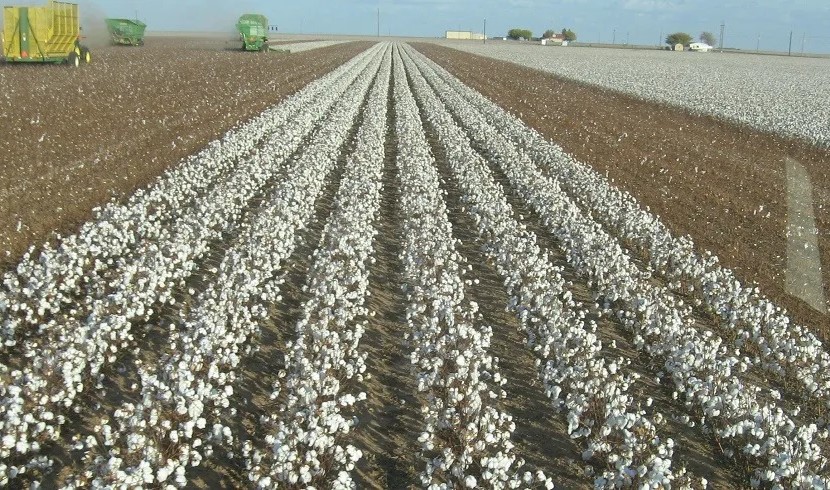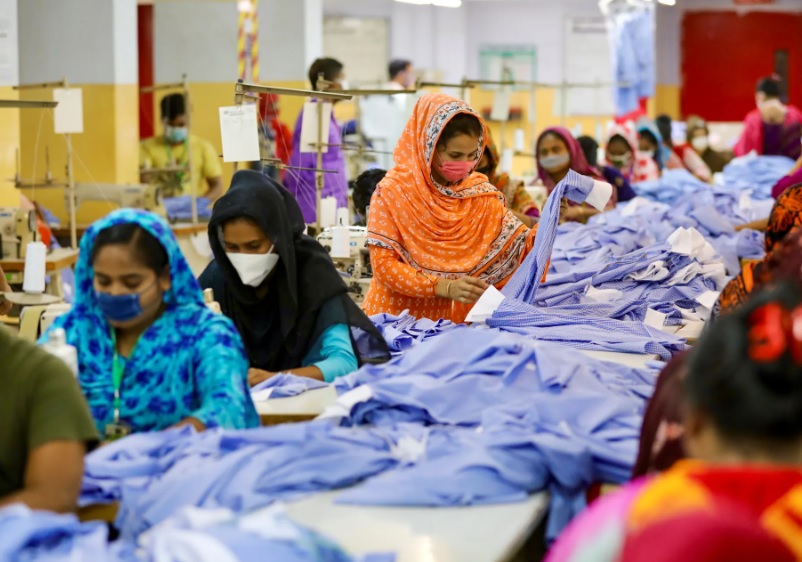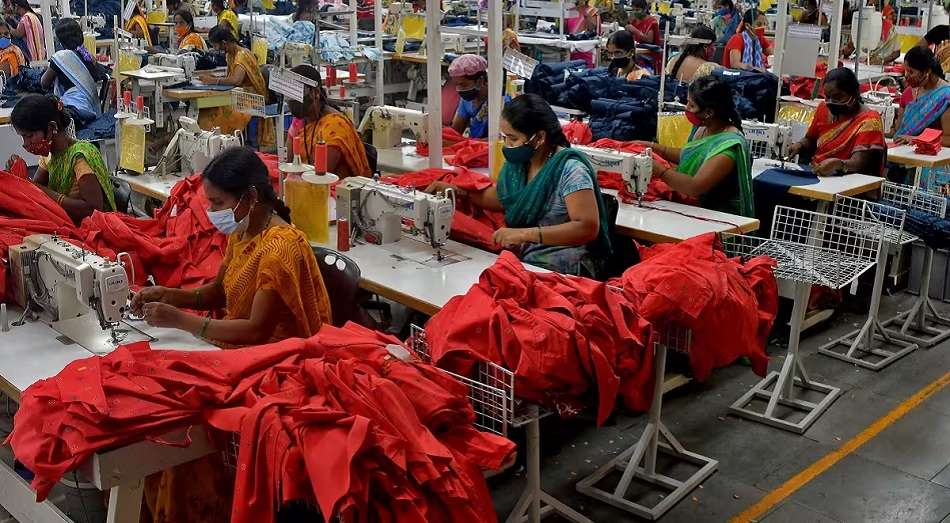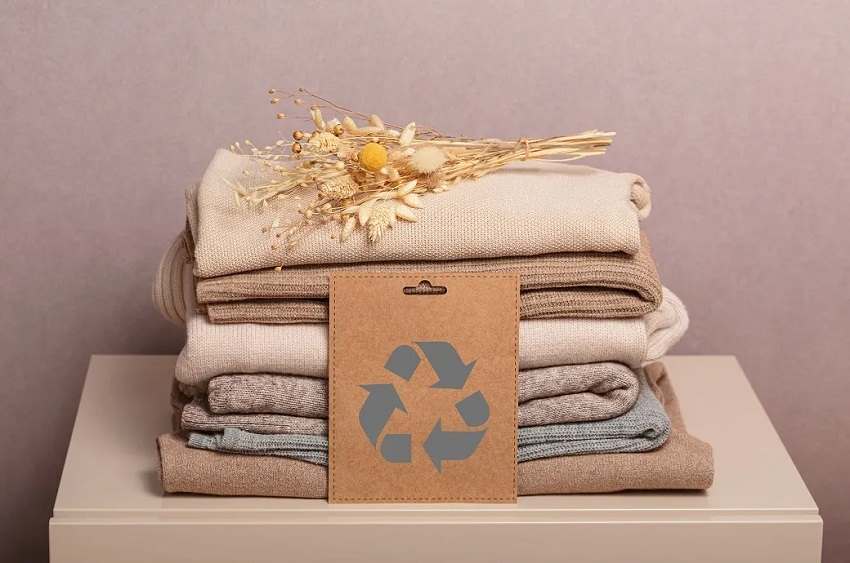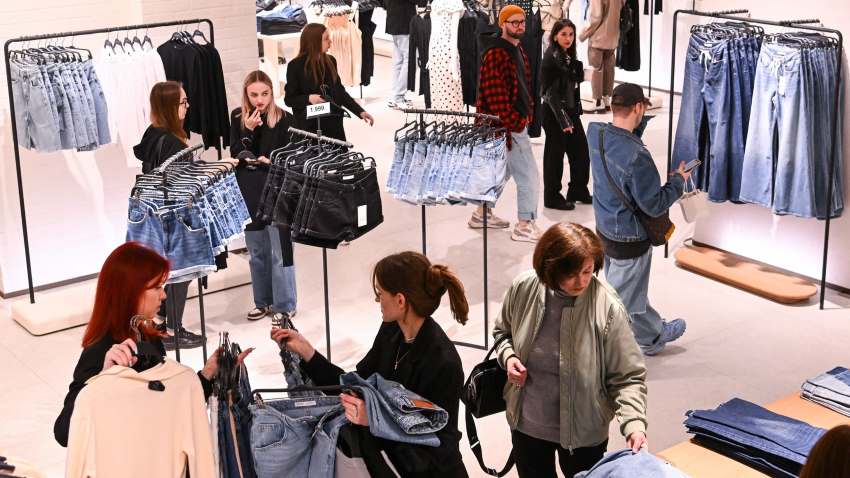To support Vietnamese textile and garment enterprises to reduce emissions, the German Development Cooperation Organization (GIZ) and French sporting goods retailer Decathlon have signed a memorandum of understanding on cooperation in improving the environmental performance of Vietnamese garment and textile suppliers.
Accordingly, GIZ partners with Decathlon Vietnam through its projects, “Climate protection through sustainable bioenergy markets in Vietnam’ (BEM) and ‘Fostering and advancing sustainable business and responsible industrial practices in the clothing industry in Asia’ (FABRIC), to help Decathlon's Vietnamese suppliers improve their ability in climate change adaptation, efficiently use of water and energy, and manage chemicals at factories in 2022.
Specifically, the GIZ Fabric project will offer free e-learning courses namely “Climate Action Training” and “Chemical Management Training (e-REMC), via the platform www.atingi.org.
Henceforth, Vietnam's textile and garment industry aims to focus on green production and reduce emissions and help implement the Government’s commitment to net-zero emissions by 2050.
The Cotton Campaign has lifted the global boycott of Uzbekistan cotton. The Cotton Campaign was supported by the United States Fashion Industry Association during this decade-long endeavor to rid the Uzbekistan cotton supply chain of child and forced labor. USFIA, and the brands and retailers oppose any form of forced labor in the global apparel supply chain.
US Fashion Industry association encourages brands and retailers to take a fresh look at sourcing opportunities in Uzbekistan and to work with the Cotton Campaign to maintain responsible sourcing and robust due diligence in Uzbekistan. It also encourages the Government of Uzbekistan to make further progress in establishing the enabling environment for responsible sourcing—including the registration of NGOs working to monitor cotton harvests—in order to address remaining risks to labor and human rights and to assure brands that they can source from Uzbekistan with confidence.
The Cotton Campaign launched the Uzbek Cotton Pledge in 2009, consolidating efforts from brands, NGOs, and Uzbek civil society activists to put pressure on the Uzbekistan Government to stop using child and forced labor in their cotton harvest. After a decade of pressure, the Uzbekistan Government launched a reform effort in 2017 to end systemic, state-imposed forced labor. An independent monitoring report by the Uzbek Forum for Human Rights monitoring labor conditions during the 2021 Uzbek cotton harvest found no use of forced labor.
After a two-year hiatus, Amsterdam Denim Days, the two-day shopping and educational festival that connects consumers to denim artisans, global brands and the supply chain, will return as a live event on April 22-23 at De Hallen and Denim City, will follow Kingpins’ return to live trade shows April 20-21 at Sugar City. As per a Sourcing Journal report, the event will help reignite Amsterdam’s struggling denim retail sector.
Denim Day’s online platform—be it videos, webinars or written content—will focus on fashion processes and content based on sustainability. Being known as the market edition, the eventwill center on small brands and young designers as well as workshops and talks featuring leading denim players. This focus on fresh talent echoes the denim industry’s greater shift to one-of-a-kind designs, local production, handcrafted garments and sustainability in general.
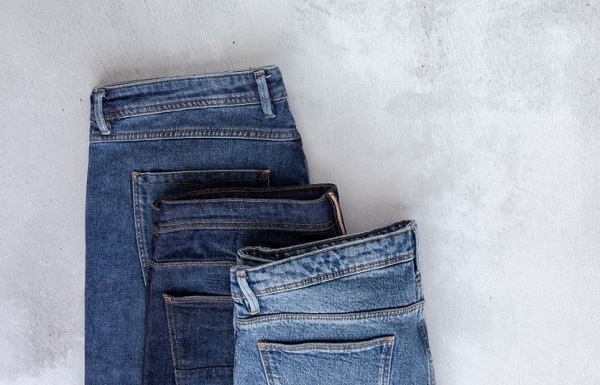
Moving out of the food domain, veganism is now making inroads into the denim industry with many brands introducing animal-free denims into their collections. The trend is currently being led by AG Jeans which has launched a men’s and women’s capsule collection of vegan leather pants, shorts and shacked. The collection outsteps the softest leather, says the brand. Each garment of the collection has been made using the same seam sealing techniques applied to real leather garments. Resembling real seam placements for an authentic look, the collection boasts of soft-touch matter rubberized hardware finishing made from recycled materials.
Constant scrutiny highlights brand’s apathy to environment
Over years, the denim industry has introduced many alternatives to water-intensive crops and chemical-powered washing processes. Yet, each of the materials used by the industry and its production processes are constantly scrutinized.
In 2019, People for the Ethical Treatment for Animals (PETA) reprimanded Levi’s, for using animal-derived leather in its collections. Though the brand claimed to use Forest Stewardship Council (FSC)-certified Jacron paper in its collection, PETA bought the company’s shares to prevent it from passing shareholder resolutions and securing speaking rights at annual meetings. In 2020, the animal-rights group also launched a petition urging Levi’s to go vegan in its collections. The petition was signed by over 125,000 people
Brands uphold consumers’ values
Forecasted to reach $1.1 billion by 2027, the vegan fashion market is being dominated by brands adhering to the values of millennials and Gen Z consumers, says an Edited report. PETA also lauds other brands like Kings of Indigo American Eagle, Boyish, Closed, Mother, Uniqlo, etc for using non-leather patches in their collections.
However, industry leaders are skeptical about the materials used in these collections and their sustainability. Most often vegan materials are made from synthetic fibers such as petroleum-based polyurethane (PU) or polyvinyl chloride (PVC), which is an extremely harmful variety of plastic, as per Greenpeace. Both these materials are made from fossil fuels and are not biodegradable, says Elif Haslaman, General Manager, DeriDesen Etiket, a Turkish trims manufacturer.
Most trims manufacturers are looking for responsible vegan alternatives like Pineapple leather, apple skin, cork, organic fabrics and stone paper. Some of these materials are certified by Global Recycle Standard (GRS), Oeko-Tex, FSC and Global Organic Textile Standard (GOTS).
Vegan jeans are also a part of the new collections aligning with Ellen MacArthur’s Jean Redesign project, an industry-wide effort to introduce circular jeans in the market. The guidelines of the project urge brands to disassemble trims carefully for recycling. A few participants of the project like Blue of a Kind and H&M are opting for patch-free circular jeans while others such as Tommy Jeans are using laser-print pieces of sustainable denims n their Jean Redesign collections.
Increased use of vegan materials
The percentage of sustainable vegan alternatives in denim collections is rising. Since 2020, Haslaman has been using certified sustainable materials in 80 percent of its DeriDesen’s collection. The company further aims to increase this percentage to 95 in 2021.
The year 2020 proved to be watershed year for the denim industry as it reinforced the sector’s commitment to sustainability. The year called for a more sustainable, ethical and ecological approach to designing and manufacturing vegan denims. The trend is likely to continue and prove as a great restart for the future denim industry.

Despite the third COVID wave, revenues of Indian brick and mortar apparel retailers are expected to grow 25 per cent this year, predicts CRISIL Ratings. This year, operating margins of apparel retailers are expected to grow between 5 to 7 per cent compared to 9 per cent pre-pandemic. Most of this growth will be driven by improving operating margins, continued cost rationalization, and prudent inventory management.
Investment recovery to strengthen credit profiles
Last year, an increase of Rs 2,000 crore in equities limited the deterioration in capital of apparel retailers. This year, recovery in accruals is likely to further strengthen the credit profiles of retailers, shows the analysis of 35 apparel retailers by CRISIL Ratings. Representing a fifth of the sector’s revenue, eight of the 35 apparel retailers witnessed strong revenue recovery in the first nine months of this fiscal. Revenues of these retailers grew 55-60 per cent year-on-year on higher festive and wedding sales.
Anuj Sethi, Senior Director, CRISIL Ratings says, easing of COVID-related restrictions and quick fading of the third wave caused minimal disruptions in operations of brick and mortar retailers. Retailers’ sales staged quick recovery in second and third quarter of this fiscal. They are expected to grow 80 per cent of pre-pandemic levels in the fourth quarter. Revenues are expected to grow by 10 per cent next fiscal as footfalls continue to increase and pandemic impact subsides, adds Sethi.
Lessening capital requirement to lower financial risks
Retail restrictions led to brick and mortar operations augmenting their omnichannel operations over the past two years. The share of e-retail sales has surged 8-9 per cent this fiscal, compared to pre-pandemic level of 4-5 per cent.
After the first pandemic wave, apparel retailers renegotiated rentals and entered into revenue-sharing agreements. They also launched limited seasonal collections, which helped rationalize their inventories and lessened their capital requirements.
Gautam Shahi, Director, CRISIL Ratings adds, increasing capital accumulation and lessening capital requirement are expected to lessen financial risks for apparel retailers. Their investments in new store openings will increase, resulting in better debt protection metrics. Interest coverage of retailers is expected to increase five times this year while the ratio of total outside liabilities to net worth is expected to increase 1.7 times.
Luxury fashion fabric show Textile Forum will open from March 16-17, 2022 at the One Marylebone, in the United Kingdom.
The forum will provide a fantastic opportunity to find thousands of fabrics for womenswear, menswear, childrenswear, bridalwear, lingerie and accessories from leading UK and overseas suppliers all in one place.
It will offer an abundance of trimmings – from buttons, embroideries and edgings to brooches, clasps, linings and labels and garment manufacturing.
The UK Fashion & Textile Association (UKFT) is the largest network for fashion and textile companies in the UK. The association brings together designers, manufacturers, suppliers, agents and retailers to promote their businesses and our industry, both in the UK and throughout the world.
UKFT represents the entire UK fashion and textile supply chain, from spinning, weaving and knitting, right through to the catwalk.
The Lenzing Group recorded a significantly improved revenue and earnings performance in 2021, compared to the previous year. The group’s revenue grew by 34.4 percent to €2.19 billion. In addition to the predominantly positive market environment, he focus on specialty fibers such as Tencel™, Lenzing™ Ecovero and Veocel™ branded fibers also had a positive impact on revenue growth. Specialty fibers currently account for 72.3 percent of fiber revenues. Significant increases in energy, raw material and logistics costs occurred throughout the reporting year. Earnings before interest, tax, depreciation and amortization (EBITDA) almost doubled compared to the previous year to reach a level of €362.9 million. The EBITDA margin rose from 11.8 percent to 16.5 percent. Net profit for the year amounted to €127.7 million and earnings per share stood at €4.16.
Gross cash flow almost tripled to €372 million in 2021 Cash flow from operating activities amounted to €394 million Free cash flow stood at-€445.5 million particularly due to investing activities in connection with the projects in Thailand and Brazil. Capital expenditure on intangible assets, property, plant and equipment and biological assets (CAPEX) increased by 26.3 percent to €844.3 million in the reporting period, approximately half of which was financed from cash flow from operating activities. The sharp rise in investment volumes is primarily due to the implementation of the two key projects.
The Supervisory Board of Lenzing AG, the world’s leading manufacturer of wood-based cellulosic fibers, has appointed Stephan Sielaff, the former CTO/COO of Lenzing AG, as the new CEO effective April 01, 2022. He succeeds Cord Prinzhorn, who took over as interim CEO in the fourth quarter of 2021. Cord Prinzhorn will return to the Supervisory Board of Lenzing AG.
Stephan Sielaff holds a degree in chemical engineering and held various management positions at Unilever and Symrise from 1993 to 2014. Between 2014 and 2020, he was responsible for the strategic development of the company as a Member of the Board of Directors (COO) at the Swiss specialty chemicals company Archroma – an important supplier of the textile and paper industry. He was appointed Chief Technology Officer and COO of Lenzing AG as of March 01, 2020.
Peter Edelmann will also leave the Supervisory Board upon his own request, effective April 26, 2022. Cord Prinzhorn will return to the Supervisory Board and will take over as Chairman. Edelmann has served as a member of the Supervisory Board since 2018 and as Chairman since 2019, as well as sitting on all Lenzing AG committees. In these four years, he has accompanied the strategic transformation of the firm on its path to becoming a sustainable specialty fiber company, thereby securing the basis for profitable future growth. During this time, Lenzing has launched and successfully implemented the two largest CAPEX projects in its history, despite COVID-19.
Eastman Kodak Company has launched a new ink system for Film-to-Fabric (DTF) printing projects.
As per a Textile Network report, the Film-to-Fabric ink system can be used with most modified inkjet printers and involves three simple components: powder, film, and ink. The benefits of DTF, like Kodak’s FTF (Film-to-Fabric) system, include the ability to print on a wide variety of fabrics (e.g. natural fabrics, polyester, nylon, rayon, blends, and cotton), less investment in hardware for startup, and more flexibility to accept customer printing projects.
Customers with existing Direct-to-Garment (DTG) printers have the option to use Kodacolor DTG inks with Kodacolor film and powder to add Kodak’s FTF to their offerings. For fabric print shop owners wanting high-quality fabric prints without the expense of a full-fledged DTG fabric printing system or wanting to offer additional print projects on fabrics other than cotton to their customers, Kodak’s FTF ink system is a solution.
Kodak has been producing and selling digital inks for thermal piezo and continuous inkjet systems going back to the 1990’s. The company has a strong history of innovation and excellence in the key technologies needed to produce fabric inks and ink systems.
Karl Mayer has launched its first Smart Machine function that revolutionizes the way of guide bar control. Pattern changes are possible in a matter of seconds trough online handling.
SwapKnit, Karl Mayer offers their costumers a new, fast and flexible way to purchase lappings for the HKS 3-M ON online in order to then be able to change them at the machine directly in a few seconds only. © Karl Mayer
The new patterning concept manages completely without pattern discs, but still enables the high operating speeds typical of mechanical guide bar drives. The basis for this is the networking of the machine via the k.ey device with the KM.ON cloud.
SwapKnit can be used for the production of new or tried-and-tested articles with pattern repeats of up to 36 stitch courses. The required lapping data is acquired with just a few clicks in Karl Mayer's Webshop Spare Parts and loaded directly from the KM.ON cloud. This enables pattern changes in a matter of seconds. Lengthy ordering processes, costs for transport and warehousing, and time-consuming manual interventions on the machine, as is usual when using pattern discs, are eliminated and replaced by extremely convenient, efficient online handling.
- 1
- 2
- 3
- 4
- 5
- 6
- 7
- 8
- 9
- 10
LuxExperience: How the Mytheresa-YNAP merger will reshape online luxury retail
The digital scenario of luxury retail has irrevocably altered with the successful completion of Mytheresa's acquisition of Yoox Net-a-Porter (YNAP)... Read more
US Apparel Imports: Scenario changes subtly as China's dominance reduces
For years, China reigned supreme as the undisputed king of US apparel imports. While still the largest supplier in aggregate... Read more
US Apparel Imports: Scenario changes subtly as China's dominance reduces
For years, China reigned supreme as the undisputed king of US apparel imports. While still the largest supplier in aggregate... Read more
Built to Break: Is our ‘waste problem’ just a design flaw?
The air in numerous pockets of the country hangs thick with the stench of discarded refuse, a stark testament to... Read more
From Importer to Global Leader: Brazil’s cotton revolution
Brazil’s ascent from a net cotton importer to the world’s largest cotton exporter is one of the most compelling success... Read more
The Unraveling: How Bangladesh's economic crisis threatens its global apparel do…
Bangladesh, a global apparel exports powerhouse, finds itself grappling with a complex economic crisis that is increasingly impacting its ready-made... Read more
US Cotton: Shifting dynamics amidst reciprocal tariffs and quality advantages
The US has long held a dominant position in the global cotton market, thanks to its reputation for producing high-quality... Read more
India’s textile and apparel industry sees mixed fortunes in FY25: Wazir Indices
India’s textile and apparel sector showed mixed results in FY25, with growth momentum visible in sales but profit metrics showing... Read more
UK charts course for circular fashion leadership with new CFIN roadmap
A new landmark report released by the Circular Fashion Innovation Network (CFIN) outlines major strides and a comprehensive roadmap for... Read more
The Unseen Cost of Fashion Returns: Undermining sustainability efforts
Fashion brands are increasingly vocal about their commitment to sustainability, proudly unveiling initiatives centered on recycled polyester, reduced water consumption... Read more




